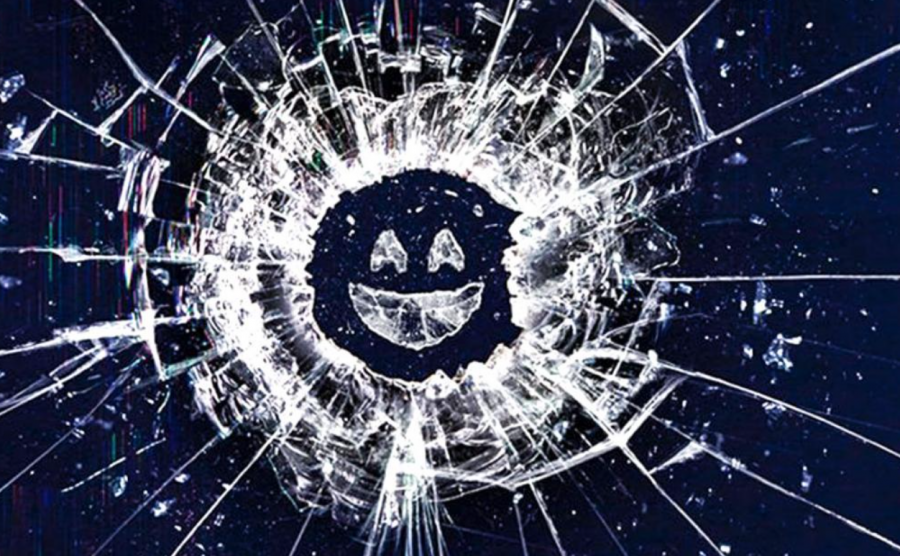Reflecting on ‘Black Mirror’
Season 4 sheds light on a dark future
The newest season of the Netflix original series Black Mirror twists viewers minds by depicting a technology-ruled dystopia. Commenting on seemingly innocent features such as family trackers, video games, dating apps, and medical engineering, this season just might be predicting the ominous consequences of technology in a otherwise perfect world.
Black Mirror, as an anthology series, has the flexibility to comment on a variety of issues in the political, social, and scientific realm.
The season starts off with USS Callister, a Star-Trek parody. This episode, despite its comical moments, throws shade at video game fandoms by portraying how an obsession could turn a fan into an evil addict. It questions the ethics of code and DNA harvesting. After all, when we play video games and kill a character, we brush it off because the character is essentially a few lines of code. However, what if this character is a copy of an enemy, your co-worker, or even your boss? What if you were that character?
Arkangel, an app that gives parents access to their child’s location, hormone levels, and everything the child sees, shows the consequences of tracking technology. By displaying a mother’s reactions to having full access to her maturing child’s life, this episode underscores the fundamental importance of trust while criticizing parents who use technology to track their kids.
Hang the DJ stands out as the sole nonviolent episode of this season. This episode contradicts itself in ways that are only uncovered at the very last scene. By questioning the effectivity of a tinder-like dating app that has a 99.8 percent success rate, the episode ironically solidifies the success of that particular app while also criticizing its own flaws. However, even this peaceful episode has darker tones that suggest that technology is better at romance than us humans.
The last episode, Black Museum, alludes to numerous Black Mirror episodes from the current and past seasons. Like the finale of Season 2, this episode consists of three main plots that result in a final resolution. As Black Museum is full of criminal artifacts from past episodes, it is best to watch this episode after finishing past seasons. Featuring an African American protagonist, this episode portrays how technology can amplify American racism. In the end, Black Museum ties in all of the technology mentioned in the history of Black Mirror and hints at the violent origin of all of the devices.
After having watched Black Mirror to its entirety, I am left questioning the ethics of scientific research and modern advancements. Is it ethical to invade a person’s privacy, even for a good cause? Should digital clones have human rights? Where do we draw the line between our enjoyment of technology’s convenience and technology’s ruling over us? Ironically, it’s a Netflix TV show that has caused me to be wary of technology.
In light of the current political and social situations, it has become more important than ever to be open-minded and consider all kinds of possibilities. Though Black Mirror offers a rather darker future, the show’s message definitely causes viewers to stop and reflect on today’s society.
Your donation will support the student journalists of McNeil High School. Your contribution will allow us to purchase equipment and cover our annual website hosting costs.










